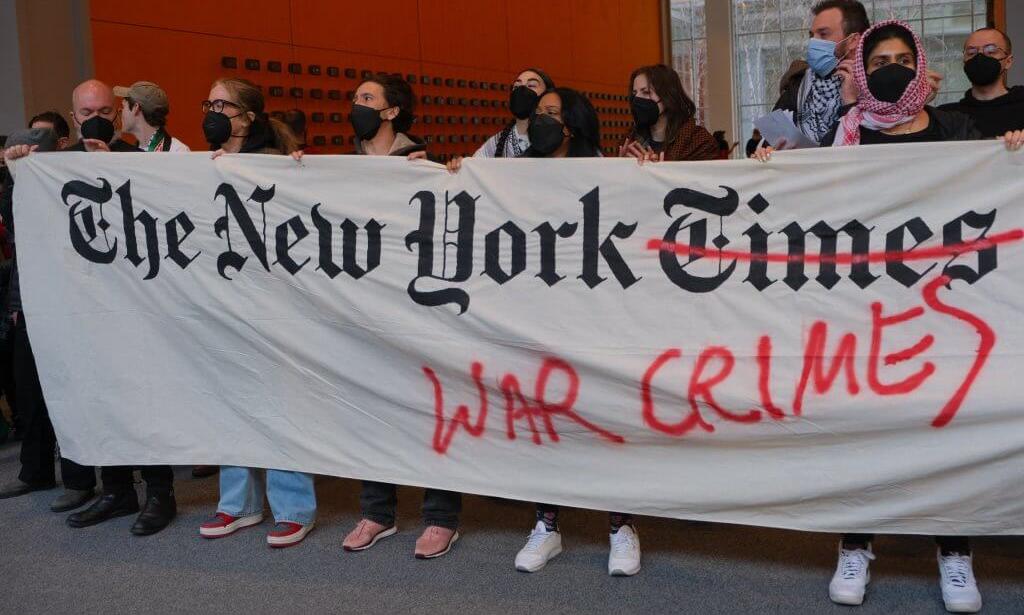Over 300 writers, scholars and public figures have collectively refused to contribute to the New York Times Opinion section, citing the paper’s complicity in abetting the ongoing genocide in Gaza and the human toll of Israel’s relentless bombardment, which has claimed thousands of lives, including those of many journalists.
The decision, formalised through a public statement, marks one of the most coordinated boycotts of a major media outlet in recent years, with the signatories asserting that The New York Times has played a decisive role in shaping narratives that obscure Israeli culpability and justify atrocities against Palestinians.
Nearly 150 of those endorsing the statement are past contributors to the paper, while others include authors, poets, academics and political figures who have pledged to withhold their labour until the paper meets three specific demands centred on accountability and ethical reporting.
Among the prominent figures joining the boycott are Rima Hassan, Sally Rooney, Gabor Maté, Rashida Tlaib, Rupi Kaur, Greta Thunberg, Viet Thanh Nguyen and Mohammed El-Kurd, whose collective refusal has intensified scrutiny of the Times’ editorial practices.
The signatories argue that the publication has long misrepresented Israel’s actions, not only through its language and sourcing but also through structural biases that favour Israeli narratives and marginalise Palestinian voices. They contend that this pattern of distortion has helped normalise impunity and contributed to the climate of dehumanisation that enables ongoing violence in Gaza.
Central to their critique is the assertion that the Times’ newsroom has repeatedly deferred to official Israeli accounts, published unverified or misleading claims, and sanitised the vocabulary of war to avoid acknowledging acts of collective punishment and occupation.
The statement also alleges that the paper’s senior leadership maintains material and ideological ties to pro-Israel interests, resulting in a newsroom culture that sidelines dissenting Arab and Muslim staff while amplifying establishment voices.
The refusal to write for the Opinion section, the signatories say, is therefore not symbolic but a deliberate effort to delegitimise the institution’s authority as the “paper of record” and challenge its capacity to frame public understanding of U.S. foreign policy.
The boycott is supported by several activist and professional networks, including Writers Against the War on Gaza, the Palestinian Youth Movement, the Palestinian Feminist Collective, and the Democratic Socialists of America.
They demand that the Times conduct a comprehensive review of its anti-Palestinian bias, retract its widely criticised investigation titled Screams Without Words, and that its Editorial Board call for a U.S. arms embargo on Israel. The groups argue that these steps are necessary to rectify decades of institutional prejudice and to ensure future reporting adheres to ethical journalistic standards.
Citing historical precedents in which the Times acknowledged its failures, from the Iraq War to the AIDS crisis, the signatories contend that genuine accountability is both possible and imperative.
They recall the paper’s own reflection on its inadequate coverage of the Holocaust as a moral benchmark that contemporary editors must now meet in the context of Gaza.

